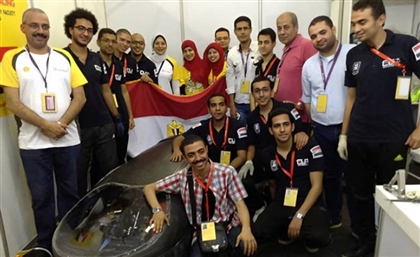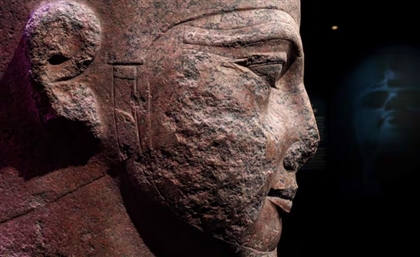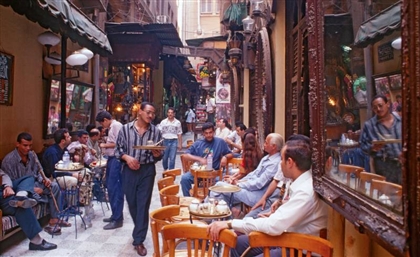Egypt Street Kids' Road to Rio
The second annual Street Child World Cup will take place in Brazil in March and this year, a collective of inspirational coaches and NGOs are working on sending a team from Egypt. Eihab Boraie meets the players and people planning to make us proud.
This feature starts with my thoughts but let's be clear; this isn't about me. I thought Egypt's road to the Rio World Cup ended with the embarrassing loss to Ghana. Dealing with this sorrow by meandering around on the internet, I stumbled upon an initiative called The Street Kid World Cup.
Amazingly, Egypt has been training a team for over a year now, on pitches all over Cairo, and this inspirational team is determined to find a way to Rio. To my greatest pleasure, I was able to make contact with the organisers and arranged to attend a practice to get a first-hand look at Egypt's next generation of hopeful superstars.
On this particular day, clouds filled the desert cold sky and on the way to practice there were reports of snow sighting, all across Egypt. The training session was for the first time taking place at the new AUC sporting facilities. I arrived just on time to avoid doing laps, but the children were arriving in stages as each bus was coming from various parts of Cairo. While waiting for everyone to show I took the opportunity to talk to the coach and one of the organisers, Karim Hosny, about the initiative and what it will take to get Egypt to Brazil.
Hosny first heard of the Street Child World Cup attending a lecture about football during a tournament he was taking part in London. At the lecture, Hosny learnt about how the Street Child World Cup was founded by the UK registered charity, Street Child United and that this global initiative is continuously growing and transforming the lives of street kids that have been robbed of a safe childhood. Its initial kick-off was just before World Cup in South Africa and was able to unite eight boy teams and four girl teams from various countries to compete. More importantly, the first tournament helped inspire, build self-confidence, and provide a positive path for the children and teaching them that traumatic upbringings don’t have to define their futures.

The initiative struck a chord with Hosny, especially considering that there is between 500,000 and a million kids on the street in Egypt, according to UNICEF. “We thought it would be easy to take the children straight off the street and into the tournament, but as we learnt more, we found it very difficult as many of the children on the street have been severely traumatised and it is a long process to extract from their lives and rehabilitate them,” he explains. It became very obvious to Hosny that they would probably need the help of NGOs to find children who meet the criteria of gathering children between the ages of 14-16, who previously lived on the streets for a couple of years, but who have been living in a shelter for over a year.
With the help of 3 NGOs, Ana el Masry, FACE and Hope Village Society, Hosny was able to bring together 18 boys who have been training for over a year now, to try-out for the team of nine that will travel to the 10-day, seven-a-side, tournament in Brazil starting on March 27th, 2014. “With this program we decided to reach out and provide as many kids as possible the opportunity to add something positive in their lives,” Hosny adds. I asked Hosny to elaborate on the hardships faced by these children, but he was hesitant to do so as the goal of the programme is to forget the past and look towards a better future. A couple days later he sent me a report of one of their kids named Khaled.
Khaled lived with his mother who was determined to make a living dealing drugs. She was married three times. From the age of three, Khaled was being exploited by his stepfather who used him and his siblings to collect scraps off the street. Eventually, his mother was caught dealing drugs and was sent to prison. By the age of seven, Khaled found himself living on the streets, collecting plastic to sell to recycling plants until the age of nine. After years of separation Khaled was taken off the streets by his eldest sister who brought him to Ana el Masry’s shelter, who, in turn introduced him to this initiative.
Every child's story is different but almost equally tragic. Watching the kids training and overcoming the myriad of obstacles left me wrought with overwhelming emotions. It was touching to see the warm and caring connection that the coaches had developed with the kids. Hosny provided them with discipline but in a loving manner, even at one point offering his football boots to one of the kids, but being mindful not to make the other children jealous. I couldn't help but feel that what was unfolding was the kind of thing people pay money to see in cinemas. As I continued my research into the story, I was happy to learn that a documentary about the Street Child World Cup is actually in the works by the Academy Award-nominated director of the film Billy Elliot, Stephen Daldry. This documentary will be yet another spotlight on this initiative and will hopefully, in time, lead to enough popular demand to televise the Street Child World Cup globally.
The whole experience left me wanting to do more. I asked Hosny what was standing in the way of Team Egypt reaching Brazil. “ The two main obstacles we are facing right now is obtaining passports and visa for the kids, as well as the working capital required to provide them with air fare and equipment,” he explains. They are still working out the logistics on how to raise funds, but they are hoping to receive money organically from caring Egyptians, as opposed to receive corporate funds and have the team branded.
This life-changing programme is definitely worth investing in. Egypt is a divided country with plenty of problems that leaves many innocent children falling through the cracks. The only time we see this country unified is when Team Egypt competes. Considering that our national team didn't make the cut for the actual World Cup, one can only hope that this groundbreaking scheme helps unite this country, while shedding light on the plight of the forgotten.
We at CairoScene would love to thank everyone involved in making this happen; Karim Hosny, Mohamed Milano, Tarek Nasr, Indjy Hosny, Mohamed Khedr, Ahmed Rasheed, Hazem El Guindy, Morad Hakim, Sara Tabana, Dalia El Debaiky and Aboubakr Shaaban, as well as FACE, Ana el Masry and Hope Village Society. This team is comprised of working professionals that have taken the time out of their careers to help reshape the lives of those who need it most, while uniting a country divided, in the process.
As such, we're doing all we can to shed light on the cause and we want you to help us. Team Egypt is now accepting donations in a bank account set up through Ana el Masry, in order to raise funds for travel tickets for the team, training equipment and gear, pitch rentals, transportation and nutrition. To donate, please get in touch with hazemelguindi@scworldcupegypt.com.
In the meantime, check out the following links to learn about the organisations involved.
Hope Village: http://egyhopevillage.com
Face: http://www.facechildren.org/en/Street_Children
Ana el Masry: anaelmasry.org/
SCWC official site: http://streetchildworldcup.org/
Keep up to date with Team Egypt's progress on their Facebook page here and follow @SCWC_Egypt on Twitter.
- Previous Article I Got Banged!
- Next Article Nomades Land
























